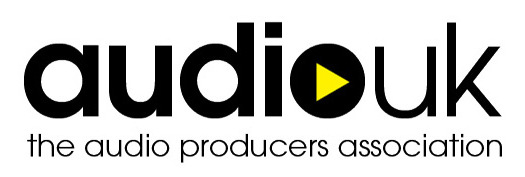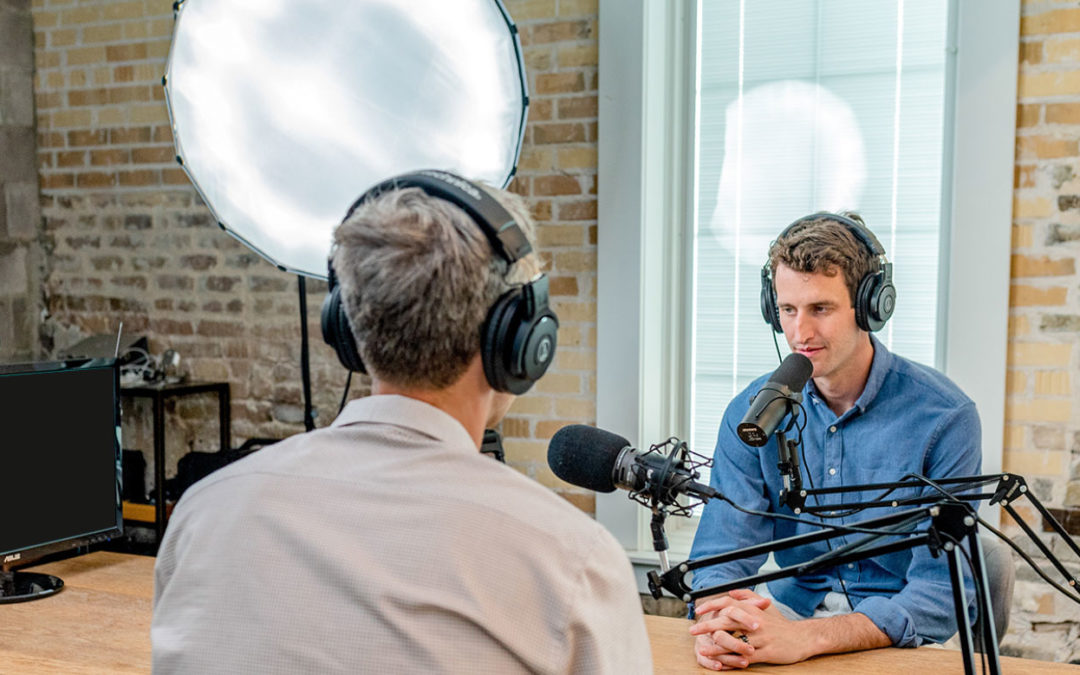AudioUK has published a Q+A document to help members who are planning to submit bids to the Audio Content Fund.
This is based on the comments and questions we have had so far and we will continue to update it as necessary.
These are based on questions we’ve had from members and should be read alongside the Fund’s own Bidding Guidelines.
The document can be downloaded here, and the contents are also pasted in below.
______________________
Q+A on the Audio Content Fund
March 2019
Introduction
There’s been a lot said and printed about the new Audio Content Fund (ACF), some of it accurate, some of it not so accurate, so we’ve produced this Q+A to help production companies get a better picture of what it is and how you can engage with it.
Note: We urge all members to read the Audio Content Fund’s own detailed Bidding Guidelines very carefully before beginning work on any prospective bids.
These can be found here: https://audiocontentfund.org.uk/files/ACF-Bidding-Guidelines.pdf
We hope you find the following Q+A for members of use – and if you decide to bid, good luck!
The Fund
So what is the Audio Content Fund?
- The ACF website states: “The Audio Content Fund is a new scheme designed to provide funding to support the creation of original radio and audio production in the UK. The ACF is part of a pilot Contestable Fund, funded by the UK Government, to support the provision and plurality of difficult to produce UK public service content. The ACF is responsible for distributing a grant of up to £3 million. Funding will be used to produce distinctive, public service radio programming that is traditionally more difficult to support on a commercial basis (such as documentaries, comedy, drama, events).”
- The ACF is a pilot scheme. Because it’s financed with government money, the Fund has to regularly report to DCMS on how the money has been spent. After two years the Fund’s success will be evaluated by government and at that point it will be decided whether it will extend into the third year.
- The Audio Content Fund is entirely separate from the BFI, which runs the Young Audiences Fund, i.e. the children’s TV part of the contestable fund.
Why was it set up?
- For background, the government, in its May 2016 BBC Charter Review White Paper, announced the idea of a pilot contestable fund for original children’s TV content. AudioUK, joined early on by commercial radio trade body Radiocentre, made the case to government for an audio element, to encourage more PSB content on a wider range of radio stations. After a public consultation and further work, the TV and audio contestable funds were finally announced in October 2018, along with a DCMS policy paper which you may wish to read for further background: https://www.gov.uk/government/publications/contestable-fund-final-scope
What does this mean for production companies?
- The ACF is an opportunity to show commercial radio, through the incentive of publicly-funded content, how production companies offer a refreshing approach and innovative ideas. The challenge for you is to come up with exciting content for public service content which would work on commercial radio, and also possibly community radio.
Who’s running the Fund?
- The ACF is a not-for-profit organisation set up to administer the government funding. It has two non-executive directors, who are the most senior executives from AudioUK and Radiocentre. As at March 2019 these are Will Jackson, Managing Director of AudioUK, and Siobhan Kenny, Chief Executive of Radiocentre. The ACF’s Managing Director, who as of April 2019 will be Sam Bailey, administrates the fund and carries out initial bid assessment of bids.
The Process
How will funding decisions be made?
- Bids will initially be checked against the criteria as published in the ACF Bidding Guidelines. There are eight criteria, three of which are mandatory – the others don’t all need to be met in any one bid.
- Those meeting the criteria then be assessed by the ACF’s Funding Panel, which is appointed by the ACF’s Directors. At March 2019 the Panel members are: former Director of BBC Radio Helen Boaden (Chair); former independent producer Mukti Jain Campion; former commercial radio chief John Myers; and radio expert Kate Cocker. Content in UK indigenous languages will be initially assessed by additional advisers, based in all the UK nations.
- The Fund isn’t obliged to finance every bid which meets the criteria and is considered to be a good idea – there is a finite amount of funding available, and there will be a desire to explore the Fund’s potential by commissioning a wide range of content from a wide range of sources.
- There will be no face-to-face pitching with the ACF. Commercial radio stations will be running commissioning processes and some or all of those will involve pitching.
Who is eligible to bid?
- You will need to be an audio production company registered at Companies House, and have a letter from an Ofcom-licensed radio station guaranteeing broadcast in a prominent slot.
- The Fund is looking to commission a diverse range of content, so any company submitting a bid will have a chance of being commissioned.
How much will the Fund pay for content?
- Unlike BBC Radio, the Fund will not publish agreed guide prices. However the ACF will be aware of the level of BBC guide prices and other production market rates, and it’s reasonable to use these as a starting point for your budget. The ACF’s Bidding Guidelines state “All projects will need to demonstrate value for money and should represent industry-standard prices.”
Is there a limit on how much money I can bid for?
- Yes, due to state aid rules a single production company cannot receive more than €200,000 over any three-year period, so if you’re planning several large-scale projects you may need to prioritise which projects you pitch to broadcasters.
Content which can be funded
What kind of content must it be?
- You can be wide-ranging in terms of subjects, formats and so on, but you must meet the stated requirements and eight criteria as outlined in the Bidding Guidelines.
Is it just for kids’ content, like the TV fund?
- No – your bids can be for any and all age groups.
Does the content have to increase station audiences?
- No – the ‘Audience Reach’ criteria in the Bidding Guidelines are only designed to make sure there is proof that there will be a ‘significant’ audience for the programme
Does it include podcasts?
- All content must be for radio broadcast at least once on an Ofcom-licensed radio station (e.g. a single commercial station or network of local commercial radio or community stations)
Can I use it to make for programmes for BBC stations?
- The Audio Content Fund is designed to finance content broadcast on stations other than the BBC, to increase plurality, and as the Bidding Guidelines state “produce distinctive, public service radio programming that is traditionally more difficult to support on a commercial basis”.
Working with Commercial Radio
What kind of content are they interested in?
- While the content is ‘public service’, what works on the BBC may well not be right for a commercial station. Familiarise yourself with commercial stations’ output, in terms of content, tone and style. This will help you generate ideas that, while sounding different and additional to what the station does, don’t ‘clash’ with their current output. This includes experimenting with formats e.g. thinking about ideas for music stations that can be ‘stripped’ across the schedule in small parts, maybe only a few minutes long.
How do I make an approach?
- Some commercial networks have initiated processes asking producers to submit ideas. These are in some cases run similarly to BBC commissioning rounds, with companies asked to submit bids and then those that are preferred are asked to pitch to the broadcaster. So do research whether your favoured station already has a system in place or whether you need to make an ad hoc approach.
What about terms of trade, IP rights etc.?
- The Audio Content Fund itself doesn’t retain any IP rights, however you will need to negotiate the rights position and other terms of trade with the broadcaster/s.
- AudioUK does not currently have standard terms of trade with commercial radio, but to help you with this, AudioUK is looking to provide some advice on key points to think about when entering negotiation, and will make these available as soon as they have been finalised. If anyone has any particular experience which could help inform this advice, then do please contact jackson@audiouk.org
Working with Community Radio
How can a community radio station meet the ‘audience reach’ criteria?
- As the Bidding Guidelines state, one community station is unlikely to be enough (without for example having substantial additional digital coverage) – your project needs to be something that can run across a network of stations.
And what about terms of trade etc.?
- This is essentially the same situation as stated above regarding commercial radio. Again, we’re looking to publish guidance and if you have any particular experience with community radio which could help inform this advice, then do please contact: jackson@audiouk.org
- The Community Media Association may be able to assist with contacts for the sector: https://www.commedia.org.uk/
Other important things to know
Is there development funding?
- Following its launch and first round, we understand that the ACF will be looking at whether and how it might allow some development funding. If so this is likely to be for specific types of project, for example where the content is attached to a project training new voices.
What happens to the content after broadcast?
- Depending on your agreement with the broadcaster you can use the content elsewhere.
Do I need to credit the Audio Content Fund in the content?
- You will be expected to include a brief audio reference to the content being financed by the Audio Content Fund. This is very important to demonstrate the Fund’s work.
And Finally…
Should I read the absolutely-essential official Bidding Guidelines published by the Audio Content Fund?
- Yes
- They’re here: https://audiocontentfund.org.uk/files/ACF-Bidding-Guidelines.pdf

